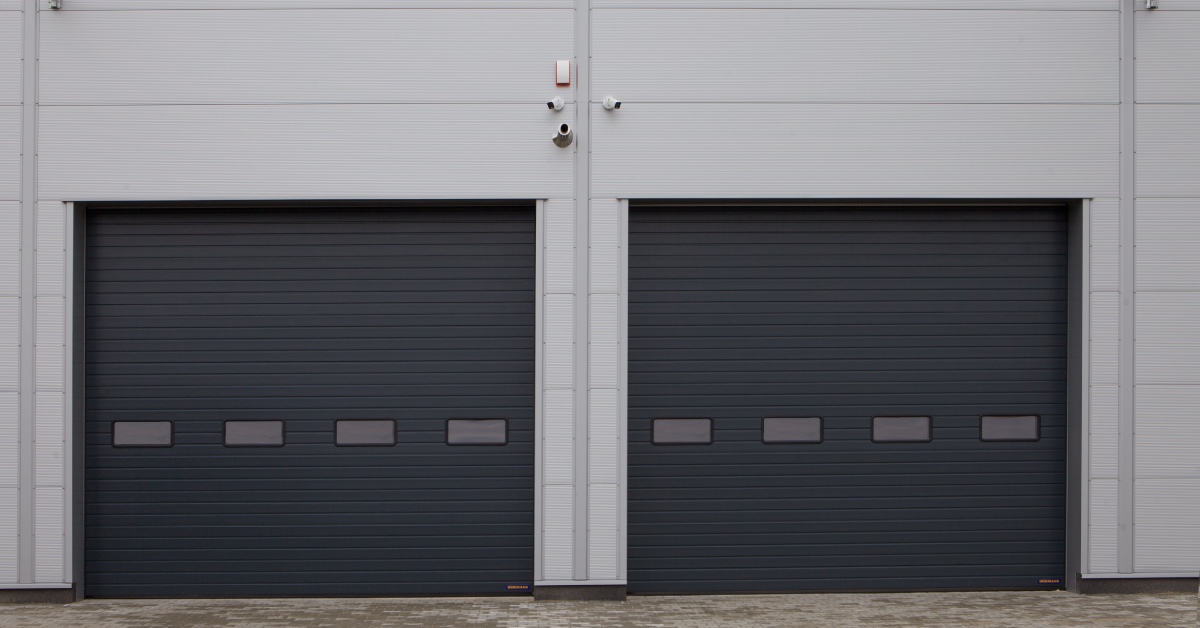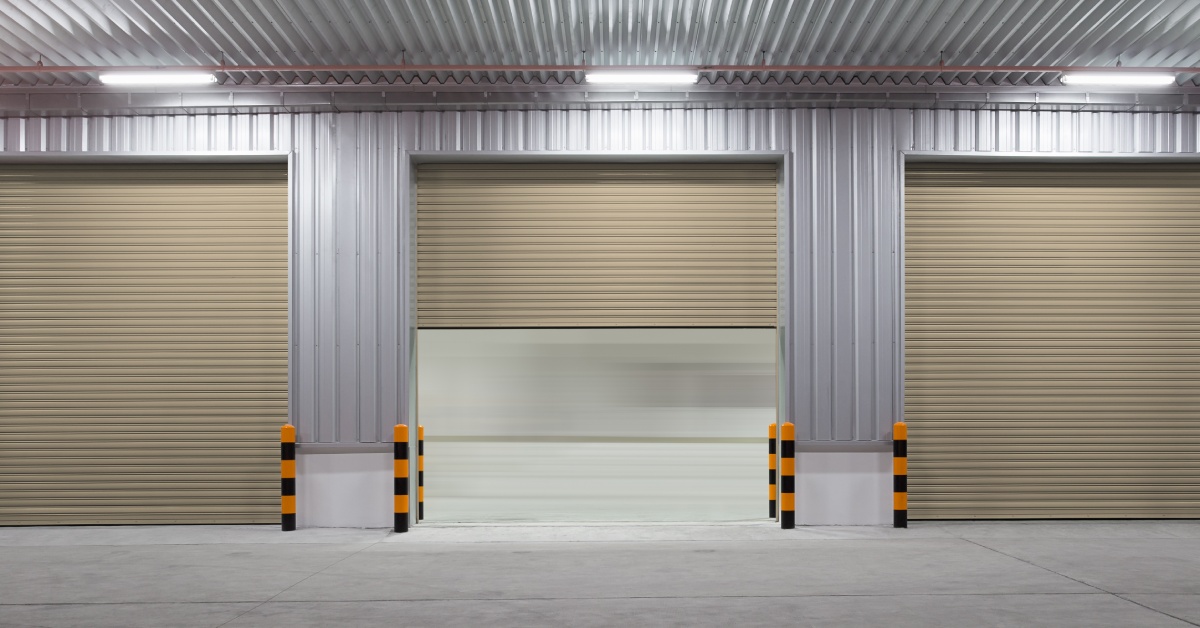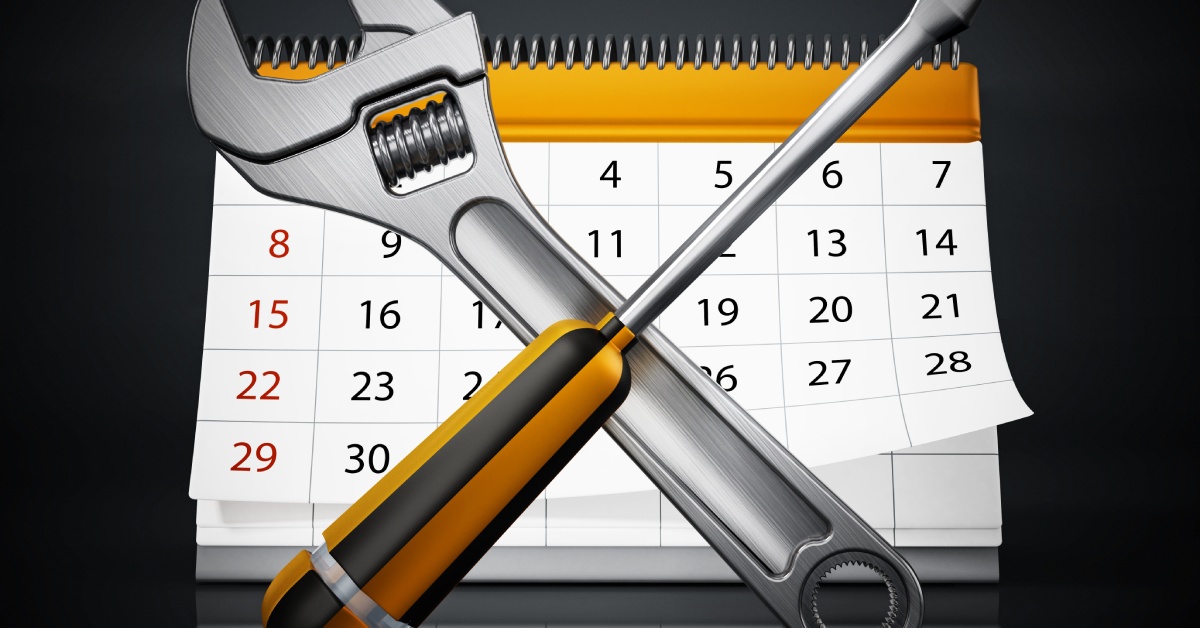Commercial roll-up garage doors are essential for many businesses, providing security, efficiency, and easy access to valuable assets. When the door opens, the metal curtain rolls into a coil. These doors take up minimal space, which maximizes the usable floor area.
When roll-up garage doors malfunction, it can lead to costly and frustrating disruptions. Use these key maintenance tips for commercial roll-up garage doors to keep operations running smoothly.
Inspect the Door Regularly
Regular inspections are crucial for identifying any potential issues early, which can save on costly repairs. You can conduct the inspections yourself or hire professionals to come at scheduled intervals.
The door should remain free of dents and bends, which can impede its ability to retract smoothly. Promptly address any surface rust or corrosion to prevent further degradation.
Hinges and fasteners keep the door panel and mechanical components securely together. Check for loose screws or bolts and tighten them as necessary to prevent loosening over time due to vibration or repetitive use.
Examining roller wheels for wear and regularly lubricating them maintains fluid motion along the tracks. Lastly, it’s necessary to inspect the lift cables, which bear the door’s weight, for fraying or kinks. Any weakness in the cables could lead to malfunctions or catastrophic failures, so call to have these replaced when needed.
Lubricate the Track and Moving Parts
Lubricant reduces friction between moving parts and helps the door move smoothly and efficiently. Regular lubrication prevents damage caused by metal parts grinding against each other, and a well-lubricated door operates more quietly.
Follow your overhead door manufacturer’s instructions for lubricating the door’s moving parts. Typically, you should lubricate the hinges, rollers, and tracks. Use a high-quality lubricant specifically designed for garage doors and wipe away the excess. Avoid heavy oils that can attract dust and debris, which can cause blockages that impede the door’s movement.
Keep the Door Clean
Cleaning your roll-up garage door is an essential maintenance task for preventing blockages and mechanical interference. Dirt and debris can accumulate over time, affecting the door’s operation. A clean door not only operates better but also enhances the overall appearance of your property. Make it a habit to regularly clean the door and its tracks.
Use mild soap and water to clean the surface, and ensure the tracks are free from any obstructions. Pay attention to the corners and edges where debris is likely to gather. Keeping the components clean minimizes wear and tear, leading to a longer-lasting door.
Perform Safety Checks Regularly
Checking the garage door’s safety features is important for testing a motor-operated door’s reliability and preventing accidents and damage. Regularly test the door’s safety features, such as sensors and auto-reverse functions, to confirm they are operational.
To check the garage door’s auto-reverse function, place a roll of paper towels or a piece of wood on the floor where the door closes. Activate the door to ensure it reverses immediately upon contact with the object, which indicates that the safety feature is functioning correctly.
If the safety features do not work correctly, stop using the door immediately. Contact a professional technician to perform a thorough assessment and repair to restore working order.
Ensure Proper Alignment
The proper alignment of your garage door rollers and tracks is necessary for smooth operation. Misaligned tracks can cause uneven wear and strain on the door, which can potentially break components or cause the door to malfunction. Regularly check and adjust the alignment to ensure everything is in sync.
Alignment issues can often be identified by unusual noises or difficulties in operation. If the door wobbles or jerks when opening or closing, it may have an alignment issue. Improper alignment can be caused by daily wear and tear, debris accumulation in the tracks, or accidental impacts that bend or shift the tracks.
If there are misalignment issues, it’s best to consult a professional technician for commercial roll-up door repair. The technician will inspect the door and then use tried-and-true tools and techniques to realign or adjust the track. Finally, they will check that the tracks are parallel and level and test the door multiple times to confirm it opens and closes correctly.
Test the Door’s Balance
A balanced door is easy to lift and lower without excessive force, which reduces strain on the automatic opener and makes it safer to operate the door manually if needed. When testing the door’s balance, disconnect the automatic opener and manually open the door. The door should lift smoothly and remain open. If it doesn’t, you may need to have the springs adjusted.
Springs balance the door by counteracting the door’s weight, making it easier to open and close manually or automatically. They store and release tension in a controlled manner. A technician can adjust the springs by altering the tension with a winding bar, locking pliers, and other tools if needed. Adjusting the springs can be dangerous because these parts are under high tension, so it’s best to let a trained technician fix them.
Schedule Routine Servicing
While DIY maintenance can keep your garage door in good shape, regular professional servicing is beneficial. Typically, a door that sees moderate use should be professionally serviced once a year to ensure optimal performance and longevity. Professional technicians will conduct a comprehensive evaluation of the system, perform preventative maintenance, and repair or replace components before problems arise. Their specialized training and tools can identify and resolve complex problems efficiently so your business experiences minimal downtime.
Doors that experience heavy use or operate in high-risk environments will need more frequent servicing, whether quarterly or semi-annually. For example, locations with extreme weather conditions, such as heavy winds or precipitation, can place additional strain on the door. High-traffic areas or facilities with hazardous materials, such as warehouses or industrial sites, may expose the roll-up garage doors to frequent impacts, corrosive elements, or abrasive substances. In these cases, it’s prudent to have the door serviced more than once a year.
Listen for Unusual Noises
A garage door that makes unusual noises like grinding, squeaking, or banging may have an underlying mechanical issue that requires immediate attention. These sounds can indicate problems such as worn-out components, misalignment, or debris caught in the mechanism.
If you hear abnormal sounds, stop using the door to prevent any existing issues from worsening. Conduct a visual inspection to identify the problem, paying close attention to the rollers, tracks, and springs, as these areas are commonly associated with noise complaints. If the cause of the noise is not apparent or requires technical intervention, enlist the help of a professional technician to solve the problem.
Keeping your commercial roll-up garage doors in top condition is crucial for your business’s operational efficiency and security. Regular maintenance, inspections, and professional servicing prevent costly disruptions and ensure safety. By following these tips, you’ll extend the lifespan of your doors and enjoy seamless operation.


